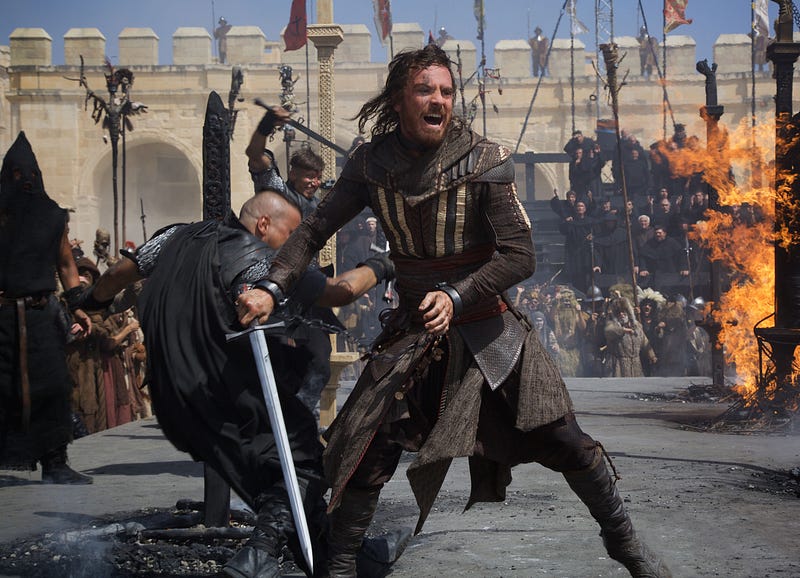From the Marvel Cinematic Universe to the budding DC Extended Universe and even to the upcoming Kong vs. Godzilla Monster-Verse, studios are always looking for blockbuster franchises destined to strike box office gold. With books (Harry Potter, Hunger Games, etc.), comics (Iron Man, Batman, etc.) and even TV shows (21 Jump Street) each having their own franchises, almost every medium has been tapped for a franchise except for one: video games.
At this point, you might be thinking, “But there have been video game movies!” Mortal Kombat, Resident Evil, Tomb Raider, and more recently, Warcraft and Assassin’s Creed are all major studio films based off of video game intellectual properties (IPs). Upon closer examination, it is evident that, while some successfully made a fair amount of money, none have truly found the critical or financial backing necessary in order to create a sustainable franchise in today’s vicious box office environment. The earliest three aforementioned films started their franchises nearly fifteen years ago. The more recent efforts have flopped critically and/or financially. In all of video-game-to-film adaptation history, there has yet to be a film that that both fans of the original property and fans of movies can point to and say: “Yes. That is a great film.” Hell, there has barely even been a film that can even be considered passable.

It’s not as if there aren’t great stories to be told in video games. Franchises such as Uncharted, The Elder Scrolls, The Witcher, or even Warcraft have been lauded for their high-quality storytelling. These franchises feature compelling plots, effective writing and characters that cause us to actually care. It is quite obvious that there is a massive untapped potential within video games. So, the question must be asked: “What can the studios do to find ‘The One?’”
I’m not going to kid myself and believe that studios reps are reading my article on how to fix their franchises. Most people who need to follow the steps I’m about to outline in this article already have films well into development like Tomb Raider, The Last of Us, and Uncharted. However, these three steps are the key, in my opinion, to unleashing the full potential of video game movies on the big screen.
2.Don’t make video game movies just for fans.
One of the biggest defenses for critically-panned films like Warcraft is that they were made for the “real fans.” If the “real fans” liked it, so the argument goes, the movie in question was a success. I don’t want to step on the toes of fans of video game franchises, because, in the end, whether or not you like a movie is truly up to you. Unfortunately, catering a massive blockbuster to a very small percentage of the movie-going crowd backs you into a proverbial creative corner. First and foremost, a video game adaptation needs to be a good film beyond simply catering to the fans. One of the biggest problems with recent flops like Assassin’s Creed is found in how deeply the movie dove into lore that confused anyone who wasn’t already a fan of the video games far more than it entertained.
2. Don’t get in the way of your cast and crew.
This suggestion is one that can really be applied to any major film franchise. It is, perhaps, my most audacious suggestion. If I’m being realistic with myself (and with you my loyal reader), this tip will never be adequately applied simply due to the nature of film studios and their role in modern filmmaking. But, in order for these films to truly succeed, studios need to let their immensely talented cast and crew do their damn job. From Angelina Jolie in Tomb Raider to Michael Fassbender in Assassin’s Creed, lead actors in video game adaptations have typically been stellar. Combine that level of performing talent with visionary directorial powerhouses like Duncan Jones and Justin Kurzel and these finished products should be great. But they’re not. I can’t help but wonder if this failure is due more than anything else to the all-too-common influence of studio interference. The cast and crews involved in these films are better than the movies they have been creating.
3. Treat video game franchise films like any other film.
At the end of the day, an Uncharted film is still just a film. A Tomb Raider movie is still, at its very core, a movie. The filmmakers and studios behind each new film need to approach their adaptations like they would any other movie, forgetting that they are specifically crafting a video game adaptation. Creative teams should look to successful franchises like the Marvel Cinematic Universe for inspiration. The MCU’s success is largely due to its creators’ ability to take great source material and adapt it into a great story by eliminating certain comic book quirks that simply wouldn’t work onscreen in hopes of creating a good film. And, with its $10 billion cumulative gross earnings, the MCU seems to be doing just fine with this technique. Looking at future films not just as video game adaptations, but as new stories in need of being told is the biggest change that I hope studios and filmmakers implement when trying to start a new video game franchise on the big screen.
Of course, I’m neither a filmmaker nor a studio executive myself, so this is merely my own inconsequential rambling on a problem that many studios are currently facing. Perhaps they’ve already taken these into account with upcoming films like Alicia Vikander’s Tomb Raider or Jason Momoa’s Just Cause. Perhaps we are on the cusp of a new era of amazing video game movies coming out year after year. Or, perhaps, we’ll be left in an eternal loading screen, waiting for The One that will save this dying genre.
This article was originally posted on shifteronfilms.com